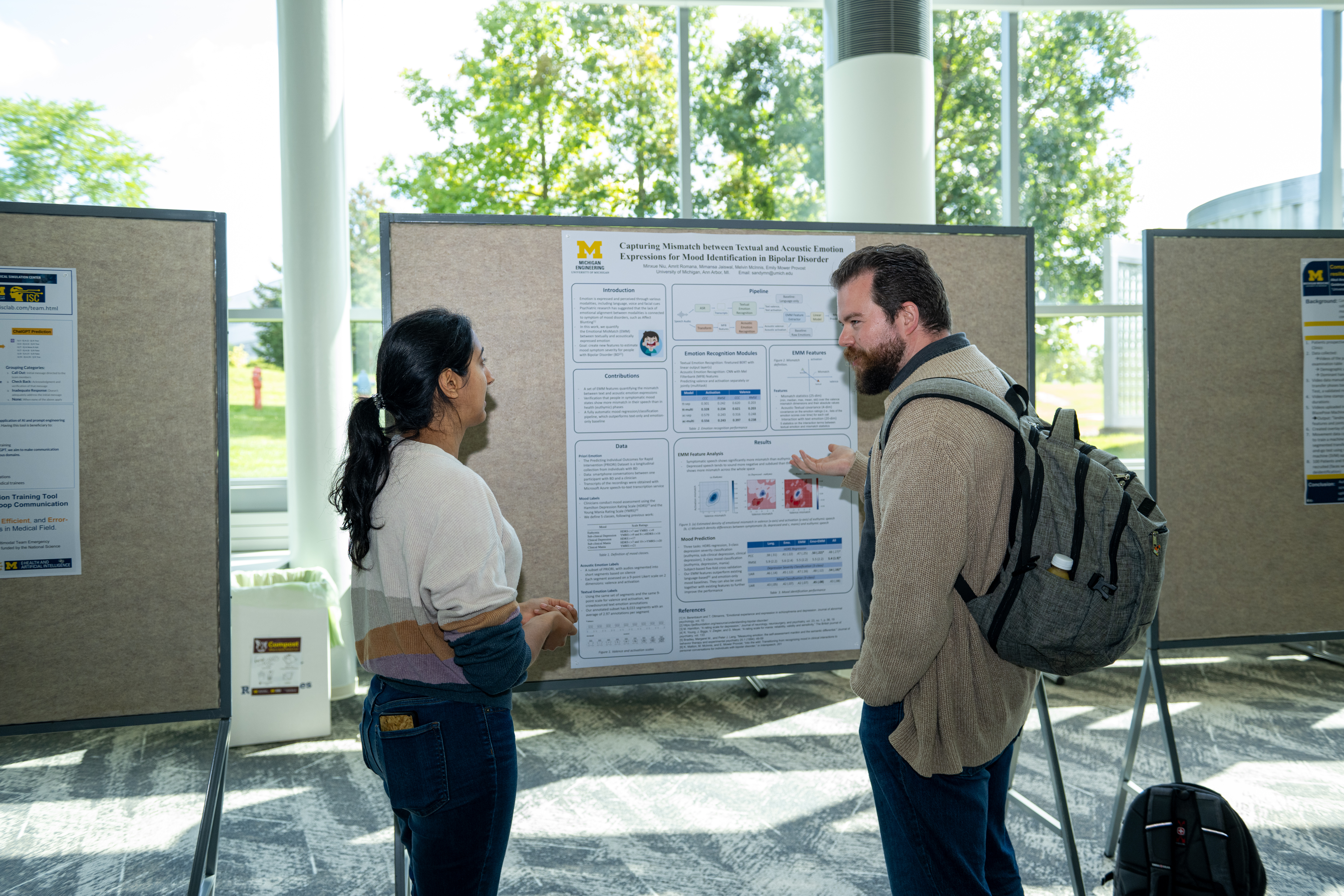e-HAIL Symposium 2024
Generative AI
in Healthcare
Join Us!
The 3rd annual e-Health and Artificial Intelligence (e-HAIL) symposium, Generative AI in Healthcare, is coming soon!
Accelerating interdisciplinary collaborations through opportunities for engagement around AI & health research is a major focus of the e-HAIL initiative, and the symposium is set up to maximize learning from and connecting with fellow faculty researchers interested/working in this field.
Friday, September 13
10:00 AM – 4:00 PM
North Campus Research Complex
Building 18, Dining Hall
2800 Plymouth Rd
Ann Arbor, MI
Stay tuned for more details.

Call for Video Research Showcase Submissions
e-HAIL members are invited to apply as part of the Video Research Showcase at the symposium.
Video research presentations can be on any topic at the intersection of AI & Health. The presentations will need to be prerecorded by the presenter and can be no longer than two minutes.

Call for Posters
U-M students at any level, as well as postdocs/researchers/faculty, are invited to present at the poster session during the symposium.
Poster presentations can be on any topic at the intersection of AI & Health. Acceptable submissions include research contributions, work in progress, as well as previously published work.
Poster submissions will be accepted on a rolling basis until Monday, August 5. We will let you know if your poster has been accepted within three weeks of submission.
Questions?
Contact J. Henrike Florusbosch, Ph.D., e-HAIL Program Manager, at jflorusb@umich.edu.

 MENU
MENU 


